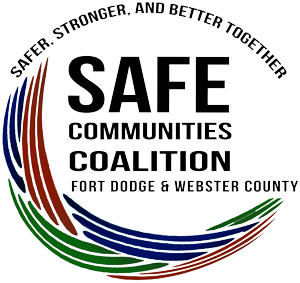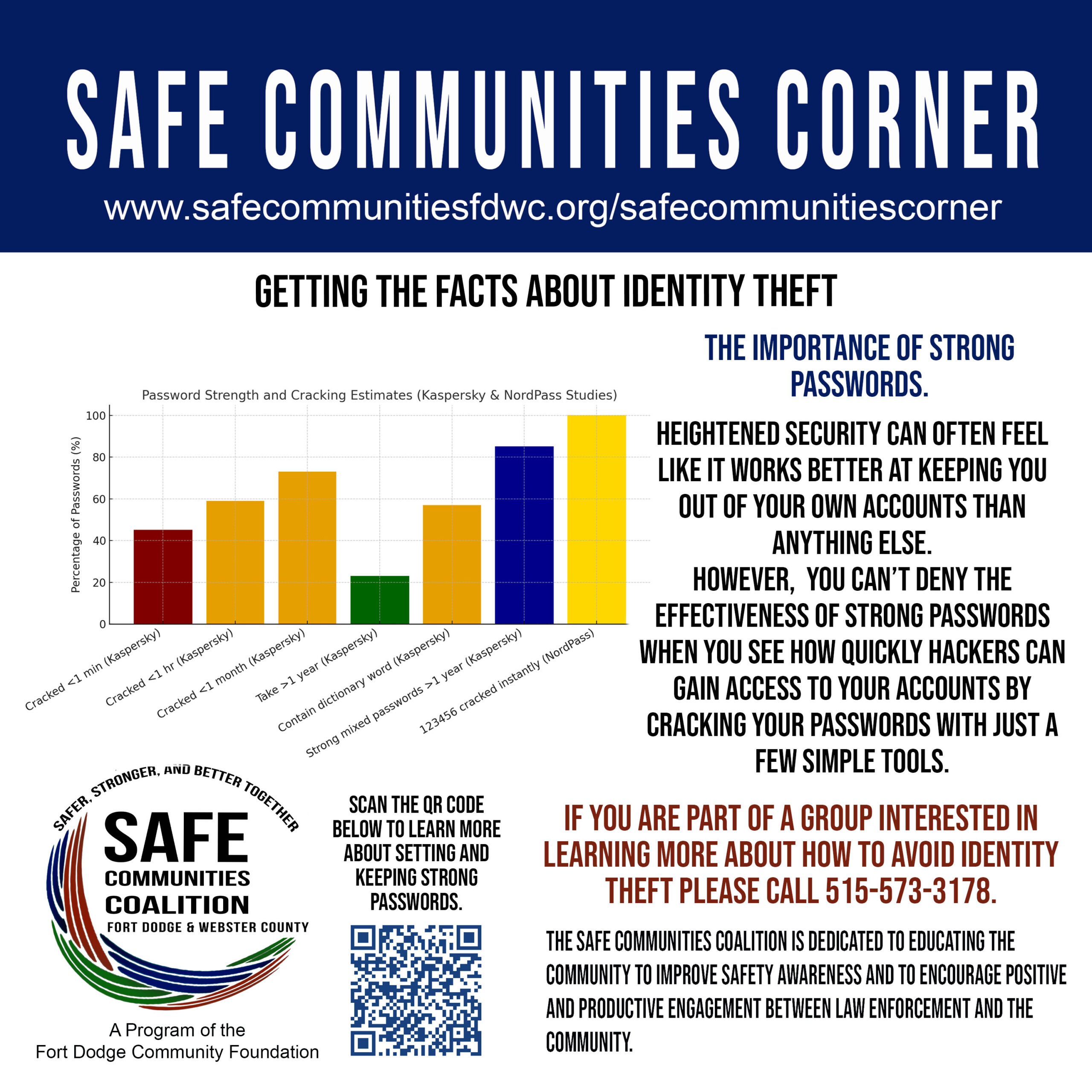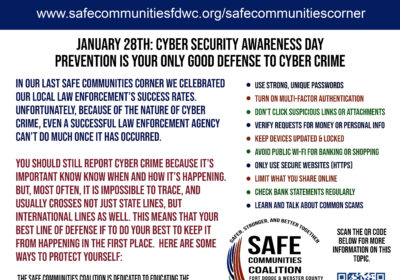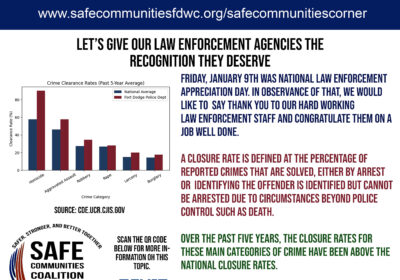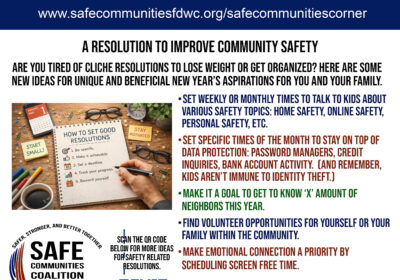Getting the Facts About Identity Theft: The Importance of Strong Passwords
In today’s connected world, passwords are often the only thing standing between a hacker and your most personal information. Unfortunately, millions of passwords end up on the dark web every year — and many can be cracked in a matter of minutes.
A study from Kaspersky examining 193 million leaked passwords revealed some startling truths:
45% of passwords can be cracked in less than one minute using modern tools and algorithms.
Another 25% can be broken in under an hour.
Only a small fraction — those that are long, random, and unique — hold up against today’s cyberattacks.
When you think about it, that means the majority of people are still relying on weak or predictable passwords, leaving their accounts and personal data vulnerable to identity theft.
Why Strong Passwords Matter
Strong passwords can feel frustrating — hard to remember, difficult to type, and constantly changing. But the extra effort pays off in a big way. Hackers use automated programs that test millions of password combinations per second. If your password is something simple like “123456,” “password,” or includes common words, it’s likely to be guessed instantly.
By contrast, a strong password that uses a mix of uppercase and lowercase letters, numbers, and symbols — and avoids dictionary words — can take years, even centuries, to break.
Think of your password as the lock on your digital front door. You wouldn’t use a flimsy lock on your home, so don’t settle for a weak password online.
Tips for Creating a Strong Password
Here are a few simple but powerful steps to boost your password security:
Make it long – Aim for at least 12–15 characters.
Mix it up – Use a combination of letters, numbers, and symbols.
Avoid personal info – Don’t include your name, birthday, or pet’s name.
Use passphrases – Combine random words to make a memorable phrase (e.g., CandleRiver!Mountain47).
Use a password manager – These tools help generate and securely store unique passwords for every account.
Protecting Yourself and Your Community
Identity theft doesn’t just affect individuals — it impacts families, workplaces, and entire communities. The Safe Communities Coalition of Fort Dodge & Webster County is working to educate residents on how to strengthen online safety habits, reduce risk, and promote positive engagement between law enforcement and the public.
If you’re part of a group interested in learning more about how to avoid identity theft, the Safe Communities Coalition offers presentations and resources tailored for your organization.
📞 Call 515-573-3178 to learn more or schedule a session.
